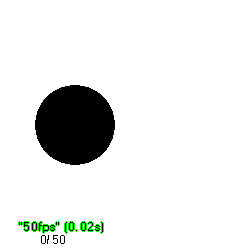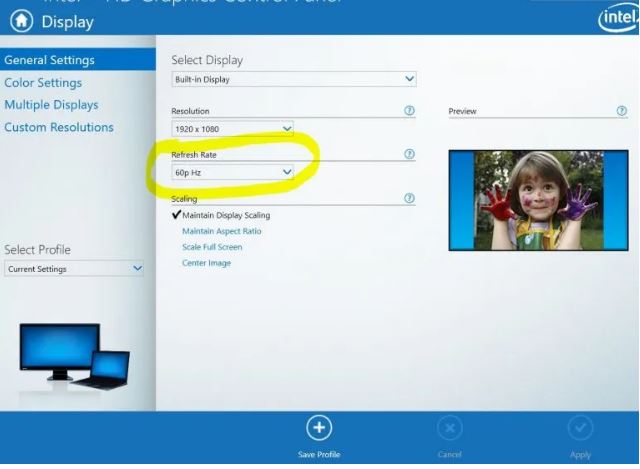Quick Navigation
The graphics card on your computer renders the images and videos you see on the screen. Graphics cards have evolved to deliver better performance than ever before as PC gaming has evolved. A gamer’s most significant metric when it comes to PC gaming is Frame Per Second. I hope it clear the question does gpu affect FPS.
In PC gaming, we are often asked whether graphics cards affect frame rates. This guide will discuss does the graphics card affect FPS, as well as how to increase it if your graphics card is weak. At the bottom, there’s a bonus video that shows you how to tweak Nvidia Control Panel to increase your FPS.
To answer your question, here is what I can tell you:
Yes, there is no doubt that a graphics card has a direct effect on the frame rate (frames per second) when playing games. Compared to entry-level graphics cards, high-end graphics cards can produce more frames per second.
What is FPS?
Graphics cards produce FPS, or frames per second, based on how many images they can produce. Data is sent by your game program to your GPU, which creates frames and sends them to your monitor. Frames per second refer to how many frames your monitor displays per second.
For a better understanding of FPS, see the animation below:

Your graphics card sends 50 images each second if you are watching a 1080p movie at 50 frames per second.
You need a GPU that can send more images per second to your monitor to achieve a higher frame rate.
Is 60 FPS Good for Gaming?
These days, 60fps is considered the minimum requirement for PC gaming. You don’t feel like you need more FPS to improve performance at this level because games look much smoother.
A 60Hz refresh rate is also common in most gaming monitors on the market. If your GPU is powerful enough to deliver more frames per second, then your monitor won’t be able to deliver them. It is only possible to overcome this problem if you pair your GPU with a gaming monitor with a higher refresh rate (144Hz).
In order to get more than 60 frames per second in gaming, you must consider your monitor’s refresh rate. With standard gaming monitors, it’s not possible, and you are usually locked to 60 frames per second.
Your monitor won’t allow you to play PC games at higher than 60 frames per second, regardless of whether your GPU can. It is better to go with a 144Hz or 240Hz gaming monitor at this point if your GPU can handle it.
If you right-click on your desktop, then go to the “Properties” tab on your display, you can easily find the refresh rate of your monitor.

What Causes FPS Lag
There are a number of factors other than your old 60fps gaming monitor that can cause you to have slower frame rates.
- The graphics card has insufficient VRAM or clock speed
- Setting the game settings to the maximum
- Increasing the resolution of a game
How to Improve FPS on PC or Laptop
It is only possible to upgrade to a better graphics card if your graphics card is weak. If, however, you are still experiencing lower frame rates despite having a decent graphics card, then here are some quick fixes.
- Maintain an up-to-date graphics card driver. Your graphics card manufacturer’s website will have drivers available for download. You may be able to fix bugs and improve the performance of your GPU with the latest drivers.
- You may experience lags and freezes if you have maxed out your in-game settings. As a result, your GPU (hardware) is not able to deliver enough frames per second for your game to look smoother. Your frame rate can be increased by lowering your in-game settings.
- If an application is not needed, it should be closed in the background. Internet Browsers (even minimized) sometimes consume a lot of RAM, which results in slower frame rates. Your frame rate can be significantly improved by closing all unwanted applications and programs.
- It is also possible to improve your FPS performance with reliable game booster software. It is possible to eliminate lags and glitches in your gameplay using applications such as WTFast, Game Fire, and Razor Cortex: Boost.
Are There any Other Factors Affecting FPS Performance besides GPU?
Your GPU is the main contributor to FPS performance. Gaming frame rates can also be improved by other parts of your PC.
CPU
It is your CPU that processes every piece of information you see on your computer screen. GPU and CPU compatibility are essential to avoid bottlenecks. In terms of fps performance, the CPU does play a small role, but the GPU takes the majority of the credit.
Rendering is much faster on CPUs with more cores and threads than on CPUs with fewer cores and threads. The performance of your CPU’s single core also plays an influential role in boosting gaming frame rates.
CPU-intensive games are few and far between compared to GPU-intensive games. The average frame rate of such games is greatly boosted by higher CPU clock speeds.
RAM
Multitasking and rendering can be made faster with more RAM on your computer. The performance of your gaming system is directly related to the amount of RAM you have.
The speed at which data is executed on your PC is improved when you have more RAM. It is a must these days to have 8GB of ram if you play PC games.
For smoother performance, you should install more than 8GB of RAM if you play games and render high-quality videos (2K or 4K).
PC RAM requirements are largely determined by the type of workload you perform. A ram with more memory and clock speed will help a bit to improve those average frame rates for intense tasks like gaming, but not as much as a GPU or CPU.
Conclusion
Your FPS in gaming is greatly influenced by your GPU. Gaming can be significantly improved when your GPU is paired with a compatible CPU. This should have answered your question. In the comments section, please tell me any other questions you have about graphics cards.

